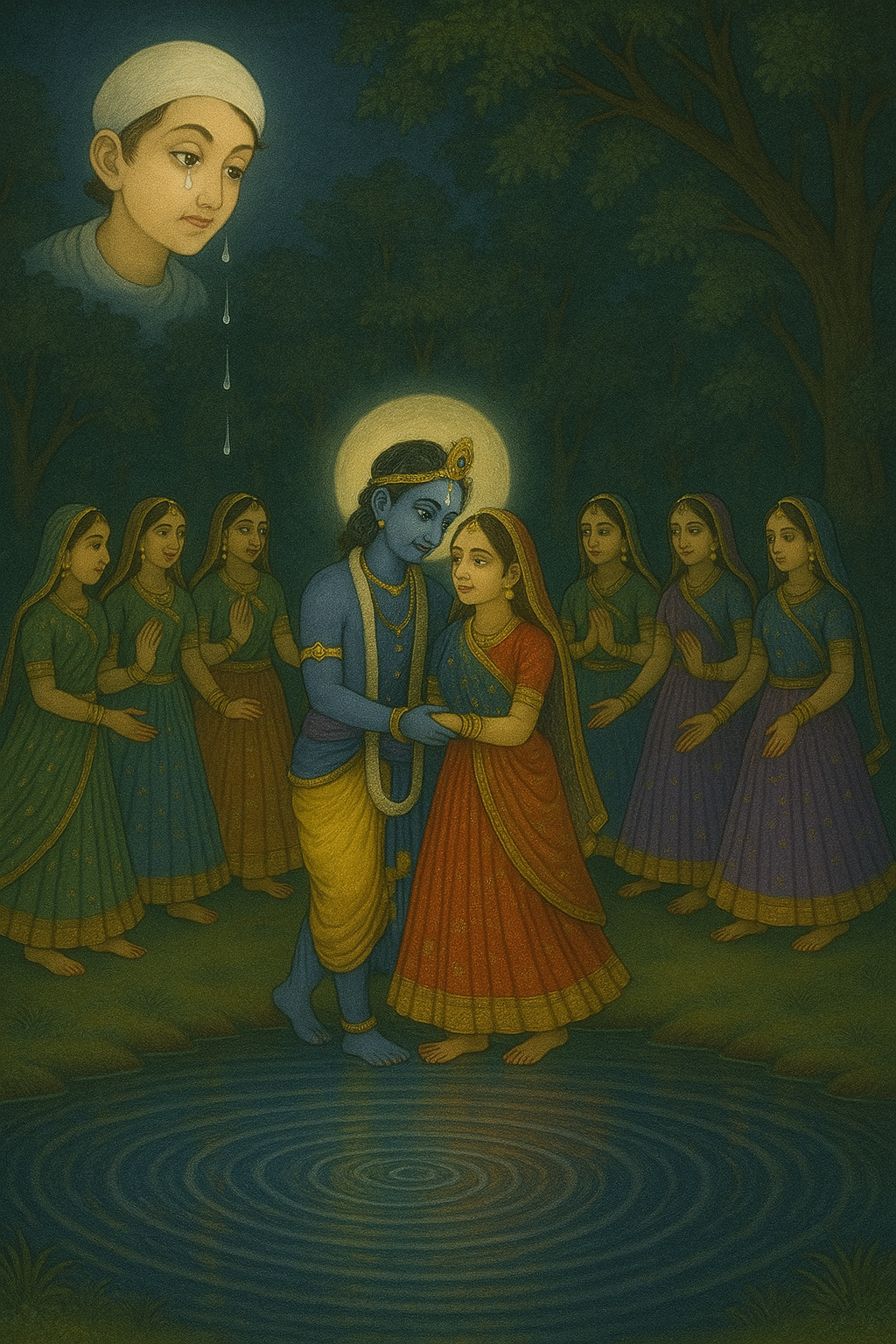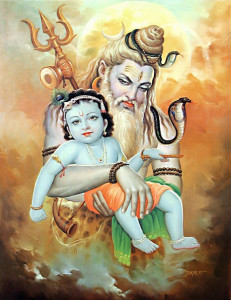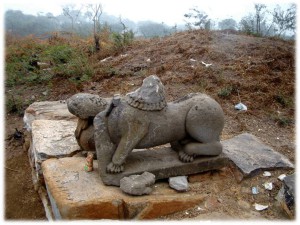The Springtime Rāsa-līlā Begins
Long ago, in the sacred forests of Vṛndāvana, Rādhā and Kṛṣṇa once performed a divine springtime rāsa-līlā with the gopīs at a secluded grove near Govardhana. Unlike the more famous rāsa-līlā at Rādhā-kuṇḍa, this dance was held on a moonlit night under the open sky of a forest clearing—at a time when there was no lake, only soft dust, flowering trees, and divine melodies echoing through the air.
The night was fragrant with blossoming flowers. The bees hummed, the breeze carried sandalwood and lotus scents, and the gopīs—dressed in splendid garments and adorned with garlands—danced in perfect rhythm with their beloved Śrī Kṛṣṇa, whose flute-song stirred the hearts of the entire cosmos.
The Celestial Witness
Above this heavenly dance hovered a host of demigods, unable to resist the attraction. Riding their celestial vimānas, they looked on with reverent awe. Among them was Chandra, the Moon-god himself. That night, he was blessed with the unique service of casting his gentle moonlight over the dancing circle of Rādhā, Kṛṣṇa, and the gopīs.
At first, Chandra simply did his duty—glowing, illuminating, admiring. But as the night continued, and the rāsaexpanded into deeper and deeper expressions of prema, something began to change in Chandra’s heart. The sweetness of Śrī Kṛṣṇa’s smiles, the love-drenched glances of Śrīmatī Rādhikā, and the ecstatic footwork of the gopīs—all these pierced the Moon-god’s heart with overwhelming spiritual emotion.
Ecstatic Tears of Love
Suddenly, as if unable to bear the rising tide of ecstasy, Chandra began to cry. These were not tears of sorrow, but tears of blissful divine astonishment—the kind that only arise when one directly witnesses the most confidential pastimes of the Supreme Lord. His tears began to fall—not metaphorically, but literally, like showers of cooling nectar from the sky.
And what happened next was a miracle.
Those tears fell in great volume, and the forest floor began to soak them up. Drop by drop, stream by stream, the basin of the forest gradually filled with these tears until a beautiful lake emerged right at the site of the rāsa-līlā. That lake came to be known as Chandra Sarovara, the “Lake of the Moon-God.”
The Lake of Prema
This is no ordinary water. It is liquid prema—tears of divine love shed by a demigod overwhelmed by the beauty of the Lord. The Vaiṣṇava ācāryas declare that just as Govinda-kuṇḍa contains the water used to bathe Śrī Kṛṣṇa, and Rādhā-kuṇḍa is filled with the essence of Mahābhāva, Chandra Sarovara is formed of the ecstatic tears of a celestial devotee.
Rūpa Gosvāmī and other ācāryas glorify this place for its eternal significance. In fact, Śrīmatī Rādhārāṇī and Her sakhīs still come here daily, after their pastimes at Rādhā-kuṇḍa, to rest, laugh, and relish honey drinks. The pastime groves around the lake are alive with spiritual fragrance and divine echoes of love-laughter.
Lessons to Be Learned
1. Bhakti transforms even demigods.
Even a powerful being like the Moon-god becomes a weeping servant in the presence of divine love. True greatness is shown not in control but in devotional surrender.
2. Witnessing the Lord’s pastimes evokes prema.
When one sincerely hears or meditates upon the līlās of Rādhā and Kṛṣṇa, tears will eventually come, as they did to Chandra. These tears are signs of the awakening soul.
3. The Lord accepts service in any form.
Chandra offered his moonlight as a service, and the Lord accepted it. Whatever talent or capacity we have, if offered with devotion, becomes valuable in Kṛṣṇa’s eyes.
4. Holy places are made sacred by prema.
Chandra Sarovara is holy not because of ritual, but because of the love that formed it. Similarly, we must strive to fill our own hearts with love so that wherever we go becomes a place of pilgrimage.
5. Ecstasy in Kṛṣṇa’s service has no limit.
Even the Moon-god lost control and cried in bliss. This teaches us that spiritual happiness far surpasses material pleasure, and even celestial beings long to taste it.
original narrated story by Indradyumna Swami


